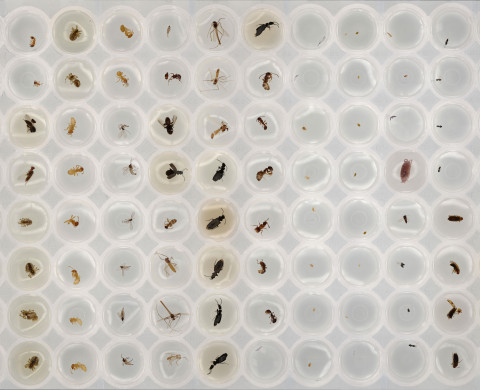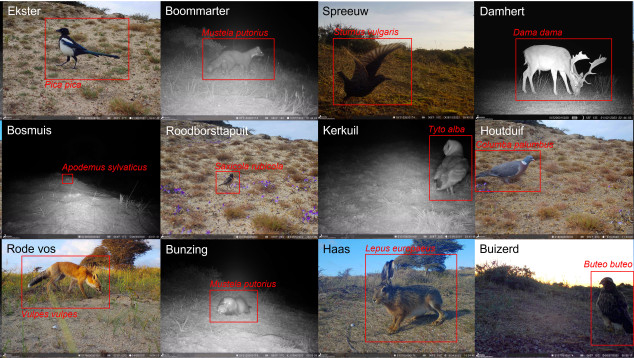ARISE

Details
- Infrastructure type
- Collections - cultures / museum
- Institute
The facility
ARISE (Authoritative and Rapid Identification System for Essential biodiversity information) is a research infastructure that will facilitate the identification of all multicellular species in the Netherlands. ARISE is currently being build, and will combine information from DNA and AI-based recognition of images, videos and sound, generated in new and existing monitoring programs, to yield a comprehensive picture of the country's biodiversity.
More information can be found on the website: https://www.arise-biodiversity.nl/
Research topics
Biodiversity, DNA barcoding, Artificial Intelligence, eDNA, Digital species identification
References
- Elaine van Ommen Kloeke; Huijbers, Chantal; Beentjes, Kevin; Kamminga, Jacob; Bakker, Piet A. J.; Kissling, W. Danie (2022). ARISE: Building an infrastructure for species recognition and biodiversity monitoring in the Netherlands. https://doi.org/10.3897/biss.6.93613
Running period
2021 – current
The facility is currently being build with first services for researchers ready in 2024. The facility will be further developed and expanded with more and more services to be added.
Equipment
ARISE will create a solution for rapid species detection. Any type of sample - be it a single specimen, an image, a sample of environmental DNA or a sound recording - the infrastructure will tell us which species are present.
ARISE has two main streams: identification based on DNA. For this, we are developing the Dutch Species Reference Database, which will contain validated DNA barcodes for every (multicellular) species. This will be based on specimen samples gathered in the field and from the natural history collection.
The Netherlands have a wide network of partly volunteer-run biology associations, who can play a large role in gathering field data and samples. Combined with the taxonomic knowledge and collection data from Naturalis and the Westerdijk Institute, the DNA reference database will be the core of the national species identification platform. A new sequencing facility for both specimen and environmental DNA will be an essential part of ARISE as well.
The other stream is Digital Species Identification based on images, video or sound. This will enable researchers to connect their biodiversity sensor (e.g. wildlife camera, insect camera, sound recorder) to ARISE or directly upload media files and use available AI algorithms in the algorithm repository to analyse this data. Additionally, the facility will include an annotation platform where researchers can annotate media files that can be used to improve or develop algorithms.
The ARISE platform will provide access to services to view and analyse your own data, search through public data or use our identification services. All data in ARISE will be managed in a central data lakehouse that can ingest data from various sources, and provide data exports to the ARISE platform as well as to other linked data infrastructures such as GBIF.
Data management
The ARISE architecture adheres to the FAIR principles as much as possible to make the data Findable, Accessible, Interoperable and Reusable. We follow international standards such as DarwinCore and CamTrapDP as much as possible for our data management system. We also implement Persistent Identifiers (PIDs), which are unique and unchangeable labels assigned to each digital object ensuring their accessibility and traceability over time.
We will also encourage users of the infrastructure to make data and algorithms publicly available and open source to promote interoperability and collaboration.
Available datasets
Camera trapping pilot data, generated by the ARISE MDS team: https://www.sciencedirect.com/science/article/pii/S2352340924005110
Conditions for access
Once released, ARISE will be an indispensable tool for people in nature management, ecological research and natural history museums from all over the world. We are currently working hard on its realization; a first working prototype is now available for selected researchers. Interested researchers can get in touch by sending a mail to arise@naturalis.nl.
Details
- Infrastructure type
- Collections - cultures / museum
- Institute


